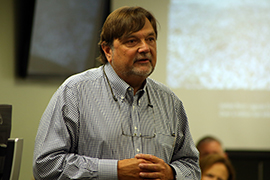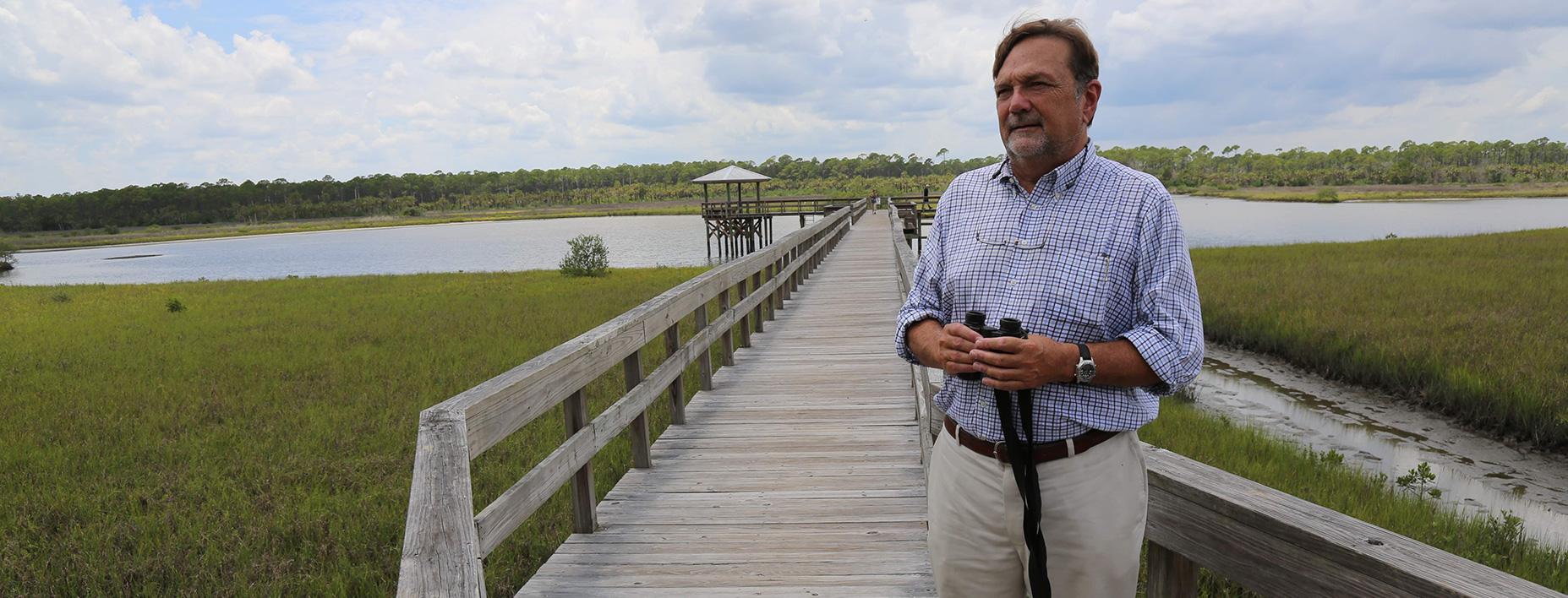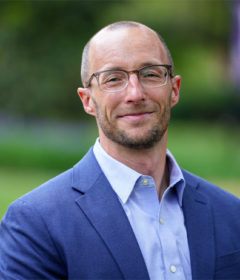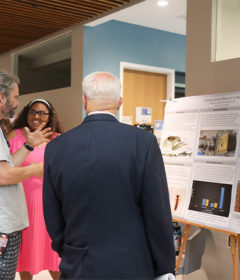Stetson Water Institute Set to Receive $1.3M in Water Pollution Lawsuit

The Stetson Institute for Water and Environmental Resilience may soon receive $1.3 million to create a Sustainable Farming Fund and help farmers reduce the pollution draining into area rivers and springs.
Two environmental groups, Environment Florida and the Sierra Club, filed suit in federal court in Jacksonville earlier this year to stop chicken producer Pilgrim’s Pride Corporation from discharging pollutants into the Suwannee River from a poultry processing plant in Live Oak.

Under a proposed settlement filed in federal court last week, Pilgrim’s Pride agreed to pay $1.43 million in penalties, including $1.3 million to Stetson University to create the Sustainable Farming Fund. The fund would be administered by the Stetson Institute for Water and provide grants to farmers to “improve surface water quality, groundwater quality, and soil quality so as to reduce the farm’s environmental impact,” according to the proposed settlement.
The settlement still must be approved by a federal judge. Pilgrim’s Pride, the second-largest chicken producer in the world, would have 30 days to pay Stetson, once the settlement takes effect, according to the court document.
Clay Henderson, executive director of the Institute for Water, said the settlement would be “a game changer” for the two-year-old Institute as it develops a program to help farmers adopt sustainable farming practices to reduce the nutrients and other pollutants washing into waterways.
“This really could be a model for how to educate and incentivize farmers to undertake more sustainable practices, particularly in areas where we’re seeing impacts to springs,” said Henderson, a noted environmental attorney. “One of our major focus areas is springs, and particularly in the Suwannee River basin, the issue is increased nutrients from agriculture.”
Henderson was not involved in the litigation and did not know about the suit, he said. “They were in a mediated settlement and came up with this idea. But it was just a general idea, and they came to us. We see our role as conveners to bring stakeholders together to solve complicated environmental issues. We gave them some ideas of how we would approach this and both sides agreed to it,” he explained.

The environmental groups were looking for “a credible, reputable, expert entity” that could lead such an effort, said John Rumpler, director of Environment America’s Clean Water Program. The two environmental groups hope Stetson’s program will serve as a model for agribusiness to reduce its pollution in other areas of Florida, as well.
“The idea came from a recognition that companies like Pilgrim’s have a pollution footprint that goes beyond the processing plant where these discharges took place,” Rumpler said by phone from Boston.
“This company raises millions of chickens, and that means chicken manure can run into the waterways. The grain that’s raised to feed the chickens is another source of pollution. In recognition of the industrywide sources of pollution, let’s leverage this funding to address the larger systemic problems.”
In the lawsuit, the environmental groups claimed Pilgrim’s Pride was discharging illegal levels of pollutants into the Suwannee River, an “Outstanding Florida Water” that is home to 62 freshwater springs, the two environmental groups wrote in a press release.
The pollutants included nitrogen, which can cause excessive algae growth, and “specific conductance,” which can indicate high levels of chloride, nitrate or sulfate, according to the release. As part of the settlement, Pilgrim’s Pride agreed to conduct a study to eliminate the discharges into the Suwannee River and upgrade its wastewater treatment plant.
“The Suwannee River is one of Florida’s great treasures,” said Jennifer Rubiello, director of Environment Florida. “By providing major resources for Stetson’s new Sustainable Farming Fund, the proposed settlement of our case would help ensure that the Suwannee is clean – for swimming, boating and for wildlife.”
The company’s discharges pose added dangers given the geology of North and Central Florida, said Henderson. In other areas, water runoff can percolate through the soil, filtering out pollutants before the water reaches underground drinking water supplies. But the terrain under the Suwannee River in north Florida, as well as in DeLand and the rest of Central Florida, is made of limestone with many cavities in it.
Those cavities can collapse and create sinkholes, and they also allow runoff to drain straight into the Floridan Aquifer, the main source of drinking water for this area and other parts of Florida.
“We’re in karst terrain here,” said Henderson, referring to this limestone terrain. “It’s that karst terrain that produces the multiple springs that we have throughout Central and North Central Florida. In this type of terrain, everything we do on the surface finds its way into the aquifer.”
Henderson said it’s too soon to discuss details of the new program, but he envisions Stetson students and faculty playing a role in reviewing proposals, monitoring results and researching new techniques.
“They agreed on us because they considered us neutral and independent,” he said. “We’re going to work with all the stakeholders. We’re going to try and create some interest in the area by educating farmers about these issues and we look forward to engaging our students and faculty in some of these ideas.”
-Cory Lancaster



